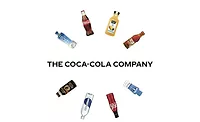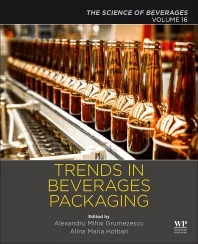The Best Beverage Packages of 2019
Sustainable packaging leads the way

In an episode of “The Berenstain Bears” titled “Don’t Pollute (Anymore),” Brother and Sister Bear open the episode with the following poem: “When Bear Country’s cubs learn that pollution’s a fact, they help grownups learn to clean up their act.” The cubs of Bear Country aren’t the only ones looking to address pollution; recently, the American Beverage Association (ABA) and America’s leading beverage companies — The Coca-Cola Co., Keurig Dr Pepper and PepsiCo — announced the launch of the Every Bottle Back initiative. The new initiative serves as an effort to reduce the industry’s use of new plastic by making significant investments in improving the collection of the industry’s valuable plastic bottles so they can be made into new bottles.
“Our industry recognizes the serious need to reduce new plastic in our environment, and we want to do our part to lead with innovative solutions,” said Katherine Lugar, president and chief executive officer of the ABA, in a statement. “Our bottles are designed to be remade, and that is why this program is so important. We are excited to partner with the leading environmental and recycling organizations to build a circular system for the production, use, recovery and remaking of our bottles.”
When it comes to sustainability, beverage brand owners are tackling packaging waste using a number of methods. As such, for Beverage Industry’s annual Best Packages poll, the publication’s editors nominated five packaging initiatives that addressed sustainable packaging. The packages featured in the poll were as follows: DASANI’s sustainable packaging innovations; New Barn Organics’ paper-based packaging; NuZee Inc.’s fully recyclable packaging option; PepsiCo’s bottled water packaging; and Sterling Vineyard’s aluminum bottle wine packaging.
Readers were able to vote for their favorite package innovation from Oct. 14 through Nov. 3. With nearly 500 votes cast in the online poll, New Barn Organics won the annual poll with 72 percent of the vote.
New Barn Organics
In the first quarter of 2019, New Barn Organics announced that it was transitioning its Almond Milk line, which previously was packaged in plastic, to Evergreen Packaging’s PlantCarton paper packaging.
Ted Robb, chief executive officer of New Barn Organics, Healdsburg, Calif., explains that transitioning to the paper-based packaging aligns with its sustainability objectives for the brand.
“It is part of our core mission and purpose as a company,” he says. “It isn’t a gimmick or marketing initiative for us. We truly believe we have a responsibility as an organization to seek out the most sustainable formats possible with each product we introduce. Of course this has to be balanced with practicality for our customers and consumers, but we believe they share our desire for [a] more sustainable supply chain and our intentions align with their desires.”
Beyond the company’s mission and purpose, Robb adds that the brand’s packaging shift also is designed to give consumers packaging that aligns with the same qualities as the beverage inside it.
“We believe that our customers expect us to deliver the highest quality, organic products possible, and this includes the packaging we put our products in,” Robb says. “We started our business packaging in No. 1 PET plastic bottles as we believed that to be the most sustainable option available at the time. When we discovered the PlantCarton package, and started to feel the consumer push away from single-use plastic, it presented the perfect opportunity for us to make a bold decision and change formats. We’ve been so pleased with the feedback we’ve received, which has been overwhelmingly positive.”
Upon learning that the packaging switch had won recognition from the readers of Beverage Industry, Robb was honored, while also sharing his admiration for the other brands within in the poll.
“We were extremely proud and humbled to be chosen for this recognition, especially considering the quality of brands who were also nominated alongside us,” he says. “They represented some real innovation and exciting evolution in consumer products packaging.”
Robb explains that working with Memphis, Tenn.-based Evergreen Packaging helped make the transition process easier for the brand.
“Evergreen Packaging has been a world-class partner from our first conversation,” he says. “They bring a lot of resources behind our emerging brand and we have been extremely grateful for their support and belief in New Barn Organics. We share a similar view to pragmatic and achievable sustainability initiatives, and we see a very bright future working with their team over the long haul. I would encourage other food brands to really seek out and understand [Evergreen Packaging’s] capabilities as a supplier. I was surprised by how much they bring to the table.”
Katie Simmons, director of marketing of the PlantCarton, notes that the company was thrilled to see a customer that embraced the benefits of PlantCarton be recognized for its package. Elaborating on the packaging supplier’s process, Simmons notes how Evergreen Packaging supports its clients looking to implement a packaging change.
“We take a measured approach to help businesses looking for a more sustainable solution by showing them how this package can really make a difference to their sustainability goals, and more importantly, to the environment,” she says. “We also help them investigate and evaluate considerations such as shelf life, supply chain, scalability needs and product fit.”
As sustainable packaging choices gain increased attention, Evergreen Packaging is looking to be part of the movement.
“Our business model is to really focus on being a good partner with value-added services such as graphics support and quality assurance, and inspections of our cartons and filling equipment at customer locations by trained service specialists,” Simmons explains. “We also invest in proprietary and syndicated data that can provide insights to our customers, and, in active engagement with organizations that support forestry best practices, recycling, and air and stream improvement. Behind the scenes, there is constant innovation to address specific customer requirements and to help all of us look towards a future with reduced plastic use.”
The runners-up
Although the other packaging innovators might not have won the annual poll, these brands also are making an impact in furthering sustainable packaging innovations and, ultimately, choice for consumers.
Finishing with 21 percent of the vote was specialty coffee company NuZee Inc., Vista, Calif., with its fully recyclable packaging option for its single-serve, pour-over coffee co-packing customers.
NuZee’s single-serve, pour-over coffee packaging solution consists of a customized box and a disposable filter with pre-measured premium coffee that is sealed within a nitrogen-flushed pouch. The customized box, coffee and filter are all recyclable; however, the pouch is not because of the films and coatings used to preserve the freshness of the coffee, it says.
Available following the signing of an exclusive agreement between NuZee and global packaging specialist Huhtamäki Oyj, the packaging enables NuZee to use the Espoo, Finland-based Huhtamäki’s next-generation blueloop line of recyclable flexible packaging to manufacture the pouch that holds each single-serve, pour-over Drip Cup, it says.
“Sustainability has always been an important part of our corporate culture,” said Masa Higashida, NuZee’s chief executive officer, in a statement. “As we grow, we must continue to evolve and transform the principles of sustainability into practice. We believe that our agreement with Huhtamäki reflects this commitment and we are proud to offer this zero-landfill packaging option to our co-packing clients.”
Rounding out the final spots in the poll were DASANI, Sterling Vineyard and PepsiCo’s bottled water brands, respectively.
This fall, DASANI announced a pipeline of sustainable packaging innovations in support of Atlanta-based The Coca-Cola Co.’s global “World Without Waste” goal to make its bottles and cans with an average of 50 percent recycled material by 2030. Designed to reduce plastic waste and increase the use of recycled and renewable materials in the United States, DASANI’s packaging updates also ensure that all DASANI bottles continue to be fully recyclable, the company says. The brand will debut the HybridBottle, The Coca-Cola Co.’s first package in the United States made with a mix of as much as 50 percent plant-based renewable and recycled PET material (PlantBottle and recycled PET plastic).
Meanwhile, Calistoga, Calif.-based Sterling Vineyards, a division of Treasury Wine Estates, brought a trio of wines to market in re-sealable aluminum bottles at the beginning of 2019. The lineup was designed not only to improve convenience for consumers, but also to do so with the winery’s unique sense of style, it says.
The recyclable aluminum bottles feature a brushed texture in a tall, narrow, 375-ml size accented by a color cap keyed to the varietal and echoed by a color bar at the bottom of the bottle. The aluminum bottles are supported with an optional custom cap with an integrated straw; an end cap/table dispenser display, which takes advantage of the bottles unique shape to feed the bottles as consumers remove them; and other tools including a “make your own” four-pack carrier and a clear plastic tote that can carry up to four cans with ice for picnics, the company says.
This summer, Purchase, N.Y.-PepsiCo Inc. announced that LIFEWTR will be packaged in 100 percent rPET bottles and its bubly sparkling waters no longer will be packaged in plastic. The company’s AQUAFINA water brand also will offer aluminum can packaging in U.S. foodservice outlets, while the brand tests the packaging move in retail. The changes, which go into effect in 2020 and are expected to eliminate more than 8,000 metric tons of virgin plastic and approximately 11,000 metric tons of greenhouse gas emissions, represent the latest steps in the company’s sustainability journey and pursuit of a circular economy for plastics, it says. They also reinforce and advance PepsiCo’s goals to make 100 percent of its packaging recyclable, compostable or biodegradable and use 25 percent recycled plastic content in all its plastic packaging by 2025, it notes.
As sustainable packaging solutions gain more attention by consumers, beverage brand owners seem to be taking a proactive role in this market trend. BI
Looking for a reprint of this article?
From high-res PDFs to custom plaques, order your copy today!







